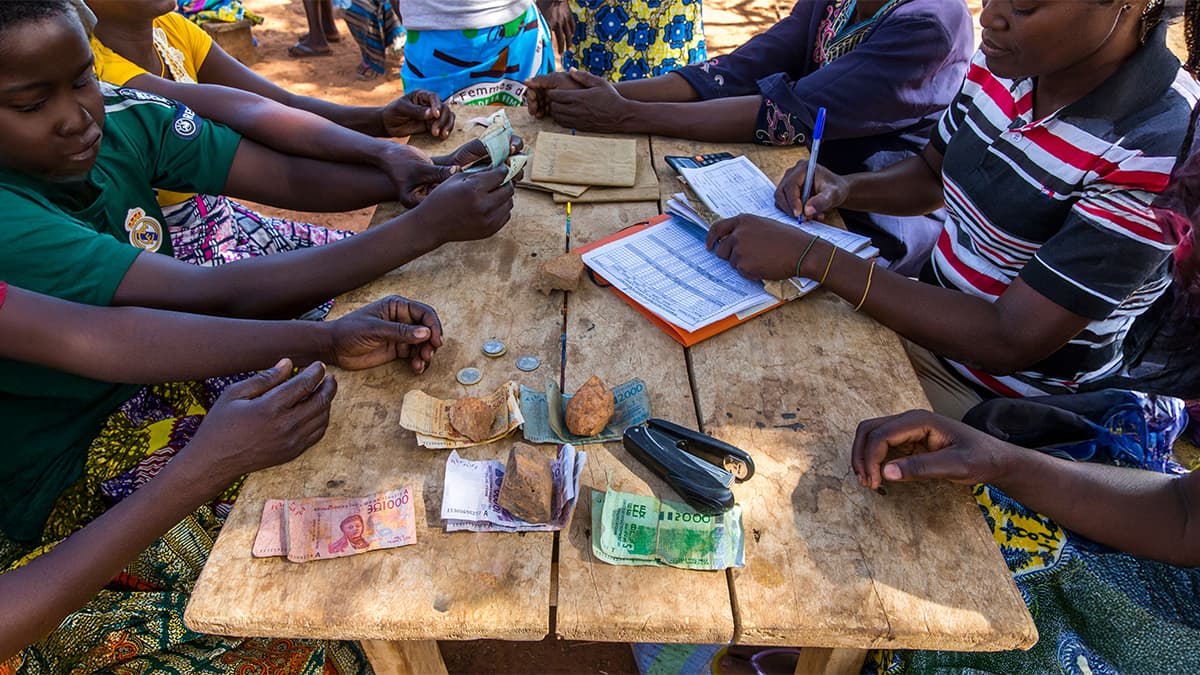Imagine a landscape where a small shop owner in rural Rwanda can order inventory with a few taps on their smartphone, or where a talented artisan in Ghana can sell traditional crafts to buyers in Paris without leaving their workshop. This isn't a distant dream – it's the emerging reality of Africa's e-commerce revolution.
Africa is on the brink of a digital revolution, and e-commerce stands at the heart of this transformation. With a projected half a billion e-commerce users by 2025, digital commerce is set to add a remarkable $180 billion to Africa’s GDP, according to the International Trade Administration. This shift isn't just about changing shopping habits; it's a wave with the potential to reshape economies, connect rural and urban populations, and empower micro and small enterprises (MSMEs).
.jpg)
Empowering Micro and Small Enterprises (MSMEs)
E-commerce offers African MSMEs a unique platform to grow and thrive. Unlike traditional business models limited by geography and resources, online marketplaces enable small vendors to reach audiences far beyond their local communities. Platforms like Jumia, Konga, and Takealot, sometimes referred to as “African Amazons,” have created marketplaces where MSMEs can compete alongside larger brands.
A compelling example is Twiga, a Kenyan platform connecting small vendors directly to farmers, eliminating middlemen who often jack up prices. Twiga provides not only fresh produce but also value-added services like credit, advisory, and insurance options, which help small businesses expand sustainably.
Transforming Consumer Access and Experience
For African consumers, e-commerce means access to an unprecedented variety of goods and services. Many rural areas, once isolated from modern retail and technology, are gradually being connected through digital platforms. In the future, a farmer in a remote village might order agricultural tools online, improving productivity, while a young entrepreneur could source materials for local crafts from an international marketplace.
Building Financial Inclusion and Trust
Mobile money has revolutionized African finance, and its synergy with e-commerce can be transformative. M-Pesa in Kenya, which allows users to send and receive payments via mobile phones, has become a crucial tool for online transactions, especially in regions where banking services are sparse. Through partnerships like Safaricom’s collaboration with PayPal, African entrepreneurs now have greater access to international markets.
However, digital payments still face hurdles. In a predominantly cash-based economy, convincing consumers to shift from cash to digital transactions requires more than convenience—it demands trust. Efforts to build digital and financial literacy are essential, along with policy support for interoperable payment systems across Africa.
Addressing Infrastructure Challenges
Infrastructure remains a key challenge, yet it is also where e-commerce platforms have shown ingenuity. For example, delivery logistics often prove difficult due to inadequate road systems and addressing issues. Some companies are adopting innovative solutions- in Rwanda, the government has partnered with DHL to create a more efficient logistics framework for small businesses, reducing barriers to market access.
Creating Jobs and Encouraging Innovation
E-commerce’s potential to create jobs in Africa is vast, with up to 3 million jobs projected by 2025. These roles span across logistics, customer service, tech support, and beyond, offering new career paths in countries with high youth unemployment. More interestingly, e-commerce fosters an entrepreneurial culture, where tech-savvy youth can start online businesses with relatively low capital.
Paving the Way for Policy and Regional Integration
Africa's e-commerce growth depends heavily on supportive policies that promote fair competition, data protection, and consumer rights. The African Continental Free Trade Area (AfCFTA) is an exciting step towards regional integration, enabling cross-border e-commerce to flourish. By harmonizing regulations and reducing trade barriers, AfCFTA could make it easier for African businesses to reach consumers across the continent, thereby strengthening regional economies.
To realize the full potential of e-commerce, African governments need to prioritize digital policies that support cross-border trade, streamline payments, and protect data. A collaborative approach between the public and private sectors, such as Rwanda’s aggregation of MSMEs for e-commerce adoption, is essential.
CSM Tech’s stakes in e-commerce: Synergy with Ethiopost
.jpg)
The Federal Democratic Republic of Ethiopia, with support from the World Bank, has tasked Ethiopost to play a transformative role in boosting small and medium-sized enterprises (SMEs) through a robust support ecosystem. To meet this mandate, Ethiopost must embrace e-commerce as a core strategy, modernizing its services to enhance efficiency and adaptability. With its legacy reputation and strong customer trust, Ethiopost is well-positioned to drive inclusive e-commerce, especially benefiting SMEs that often struggle to access digital markets. Aiming for a comprehensive digital transformation, Ethiopost is set to provide a suite of essential e-commerce services—from streamlined pick-up and delivery options to integrated payment solutions and internet-based customer services—creating a robust foundation for e-commerce growth in Ethiopia.
In alignment with this vision, CSM Tech, in collaboration with AFRICOM Technologies, developed a web-based e-commerce solution specifically for the Ethiopian Postal Services Enterprise. This platform is designed to enhance market access for SMEs, allowing them to reach a broader audience with ease. By facilitating a seamless online product marketing process, Ethiopost is helping vendors present their products to a digital customer base, improving the organization’s forecasting capabilities and revenue collection efficiency. In turn, this solution not only expands Ethiopost’s revenue potential but also strengthens Ethiopia's e-commerce infrastructure, empowering SMEs to thrive in the digital economy and contribute to the nation's economic growth.
A Digitally Empowered Future Beckons
Africa's e-commerce story isn't just limited to buying and selling online – it's about economic emancipation. It's about the young entrepreneur in Nigeria who can now compete globally, the rural farmer who can check prices on their phone before selling their harvest, and the suburban mother who can run a thriving business from home. The next chapter of Africa's economic story is being written in digital ink, and the pen is in the hands of millions of entrepreneurs.


























































We will verify and publish your comment soon.